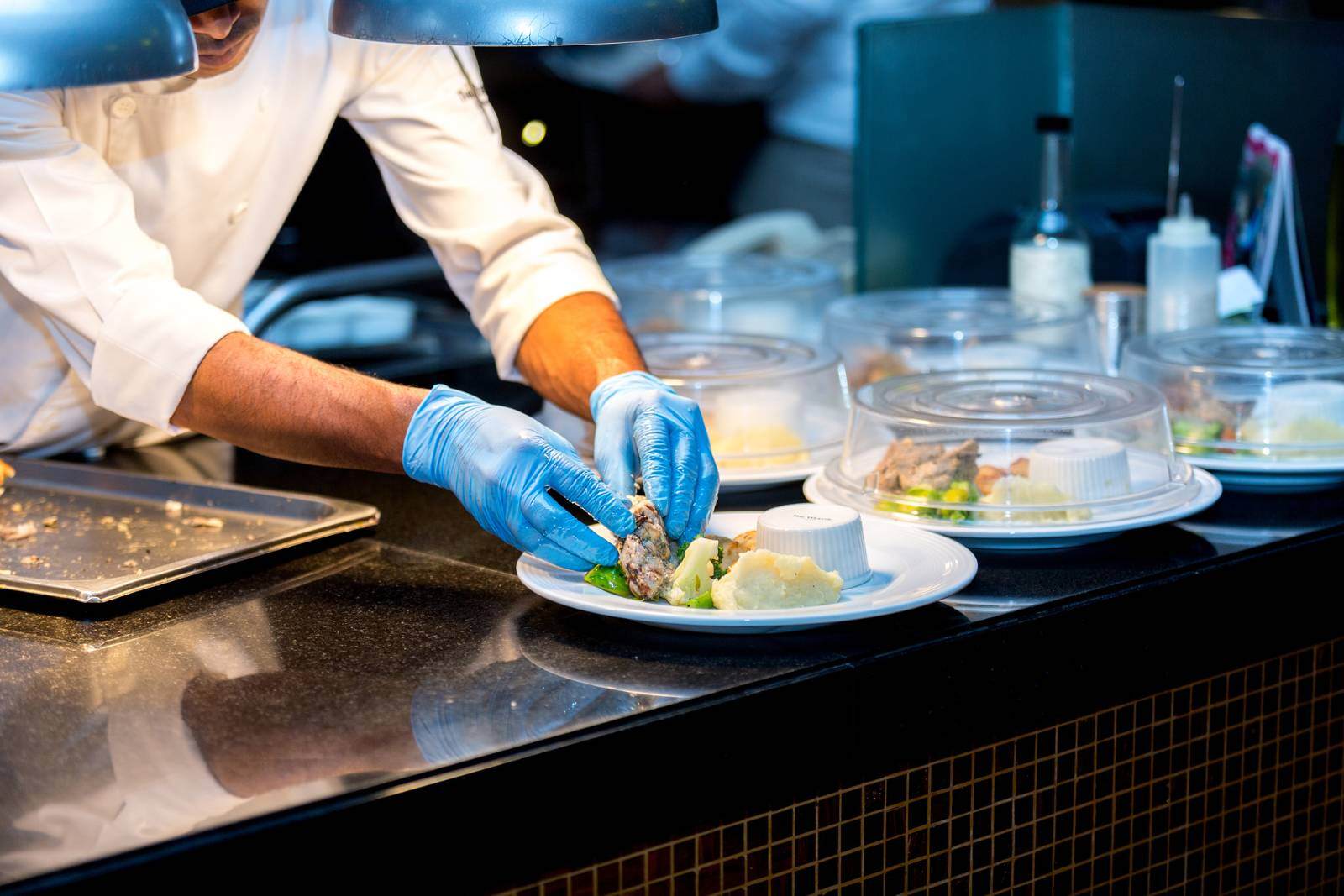Have you ever wondered how long your food handler’s card lasts?
You’re not alone. Whether you work in a restaurant, hospital kitchen, or school cafeteria, you are probably well aware of how confusing it can be to keep up with food safety regulations.
However, it’s important to remember that food safety isn’t just about keeping the kitchen clean. It’s about keeping your customers and coworkers safe and healthy.
Once you’ve received a food handler card or certificate, you might wonder what’s next.
Read on to learn:
What is a food handler’s card?
Why is a food handler’s card important?
How long does a food handler’s card last?
Why do food handler cards expire?
How to get a food handler's card
What happens if you lose your food handler’s card?
What is a food handler’s card?
A food handler's card or certificate is a document that proves you've undergone basic food safety training. These credentials may be called a "food handler’s card" or "food handler’s certificate." Both indicate that you have taken a course and passed the assessment.
Food handler training isn't just for chefs. If you handle food in any capacity–think bartenders, servers, and even dishwashers–at a food establishment, you likely need a food handler card.
The requirements for who must have a food handler’s card (and how to get one) vary by state, so be sure to do your research before applying for a new job.
Why is a food handler’s card important?
You can’t overstate the importance of having a food handler’s card. Food handler cards ensure everyone on staff understands food safety, reducing the risk of foodborne illnesses. In an industry where one bad review can hurt a business, it is incredibly important to ensure everyone is on the same page.
Here are some other key reasons why you need to have an updated card at all times:
-
Preventing foodborne illness: Having a food handler's card means you understand the basics of food safety and how to prevent foodborne illnesses, including proper cooking temperatures, avoiding cross-contamination, and maintaining personal hygiene.
-
Compliance with local regulations: Different states and municipalities have specific requirements for food safety training. A food handler’s card ensures you meet these local regulations, helping your establishment avoid fines or shutdowns.
-
Building customer trust: Customers are more likely to trust an establishment that takes food safety seriously. Displaying food handler’s cards and food manager certifications can build confidence in your establishment.
-
Protecting your career: For food industry professionals, having a food handler’s card can make you more employable. It demonstrates your commitment to high standards and can set you apart from others in the job market.
How long does a food handler’s card last?
A food handler card is generally valid for two to five years, depending on where you live.
For example, food handler certificates are valid for three years in California, whereas in Texas, you must renew yours every two years.1
There’s also some variation by city and county (e.g., New York State requires renewal every three years, while the New York City food handler card never expires).2
The specifics may vary significantly depending on exactly where you live, so always check your local regulations to make sure you’re on track.
In general, once your food handler’s card expires, you must take a renewal course and pass the assessment again. This ensures that everyone in the industry stays up-to-date with the latest food safety practices.
Why do food handler cards expire?
Food handler's cards aren’t meant to last forever! Expiration dates ensure food handlers remain informed about the latest food safety recommendations.
Food handler courses should cover cross-contamination, proper cooking temperatures, and the importance of personal hygiene. All of these are critical to preventing foodborne illness.
When you regularly renew your food handler card, you hold yourself to a higher industry standard because you’re re-educating and reinforcing new and classic food safety concepts.
How to get a food handler's card
Getting your food handler's card is straightforward.
First, find an accredited training provider. Look for courses that are recognized in your state or accredited by organizations like the ANSI National Accreditation Board (ANAB).
Pro Tip: You can find out if Trust20's training programs are accepted where you live quickly!
Take the online or in-person class, which typically covers everything from safe food handling to hygiene and even how to prevent foodborne illnesses. You'll need to pass an assessment to demonstrate your understanding of food safety principles. Once you do, you'll receive your official food handler card or certificate.
Keep your card accessible and make sure your employer has a copy for their records. Easy as that!
What happens if you lose your food handler’s card?
If you lose your food handler's card, don’t panic.
Tell your boss immediately because they may have a copy on file. If not, check the website of your original training provider–most providers offer a straightforward way to obtain a replacement.
In the day and age of online food handler certificates, getting a replacement should be a piece of cake!
FAQ
Do I need a food handler card if I’m a volunteer?
Requirements for volunteers vary by location and organization. Some states or facilities require all food handlers, including volunteers, to have a valid card. Always check with the organization or your local health department.
What happens if I fail the assessment?
Most training providers allow you to retake the assessment, sometimes for a small additional fee. Review the training materials and try again until you pass.
Can I use my food handler card in another state?
Not always. Many food handler cards are only valid in the state where you completed the training. If you move or start work in another state, check their regulations and consider taking a local course.
Do I need to carry my card with me at work?
Many employers require you to keep a copy of your card on site, and local health departments may request proof during inspections. It's a good idea to have a digital or paper copy available at your workplace.
How long does it take to get a food handler card?
Most courses can be completed in 1-2 hours, and many online programs provide instant access to your card after passing the assessment.
Is it time to renew your food handler’s card?
Now’s as good a time as any to check the expiration date on your food handler certificate!
If you’re due to renew your food handler card, look for training accredited by the ANSI National Accreditation Board (ANAB) to ensure you’re learning from a nationally recognized provider (like Trust20!).
Ultimately, a current food handler's card is not just about checking a box. It's about protecting the safety and satisfaction of your customers, maintaining your establishment's reputation, and staying competitive in the food industry.
No matter your role in the kitchen, staying up-to-date with your food safety credentials keeps your customers safe–and you and your kitchen in compliance!
Sources
-
LA County Public Health: California Food Handler card Law Guidelines
-
NYC Department of Health: Food Protection Course - Online FAQ






-1.png)
.png)
